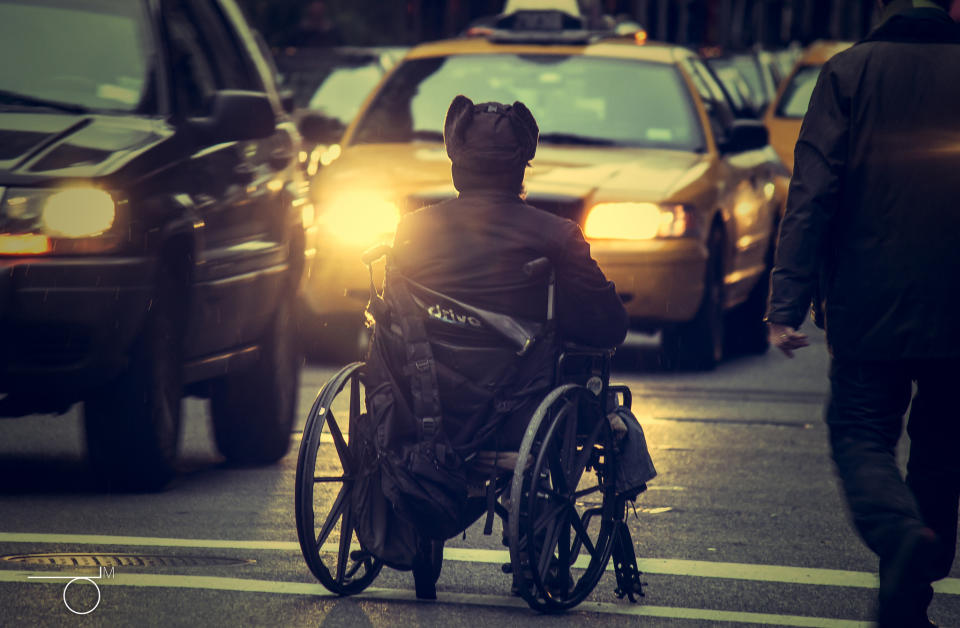Uber sued again for failing to accommodate disabled passengers
The plaintiffs claim that Uber only provides .1 percent of its fleet for people using wheelchairs.
Despite Uber's programs to serve the needs of people who use wheelchairs, the ride sharing company faces a long line of lawsuits and complaints about its ability to serve people with disabilities. The Equal Rights Center claims that the company is in violation of Title 3 of the Americans with Disabilities Act as well as the DC Human Rights Act in Washington, DC. Mississippi riders have filed a similar suit, alleging that "persons with disabilities in Jackson have no ability to call a wheelchair accessible vehicle or a specially trained driver through the Uber app."
Now there's a suit against Uber in In New York City. Disability Rights Activists (DRA) just filed a class action by a "broad coalition of disability groups and disabled individuals in New York City," saying that Uber is 99.9% inaccessible to people with mobility disabilities.
The suit was filed in New York Supreme Court in Manhattan on behalf of Brooklyn Center for Independence of the Disabled, the Taxis for All Campaign, Disabled in Action of Metropolitan New York and individuals who use wheelchairs. The suit claims that while Uber has "grown exponentially" in the city, the company has shown "total disregard for the rights of people with disabilities." The DRA claims that Uber has a fleet of approximately 58,000 vehicles in the five boroughs of NYC, "fewer than 100 of them offer the lifts or ramps necessary" to accommodate those who use wheelchairs or other mobility devices.
The agency notes that other transportation options like taxis, subways and buses are mostly inaccessible, too. Even Access-A-Ride, the city's paratransit service, is pretty awful, according to the press release. An accessible Uber would benefit people with mobility disabilities if the company were able and willing to provide it in usable quantities. The plaintiffs are not seeking damages, just equal access to Uber's services.
"UberWAV makes up only .1% of the 58,000 vehicle fleet. It's just window dressing designed to skirt anti-discrimination laws," said DRA's Michelle Caiola in a statement. "Uber must not be allowed to operate in New York City in a discriminatory manner. It must ensure its convenience and benefits are available to all people equally."
Uber responded to our request for comment with the following statement: "Uber's technology has expanded access to reliable transportation options for all riders, including those with disabilities and has enabled people with disabilities to earn income in new ways. While there is certainly more work to be done, we will continue advocating for a solution that offers affordable, reliable transportation to those who need a wheelchair accessible vehicle." The spokesperson also pointed out that the company has been advocating for a 5-cent surcharge on all for-hire rides in the city, which would incentivize more drivers (not just ones that drive for Uber) to convert to wheelchair-accessible vehicles.



